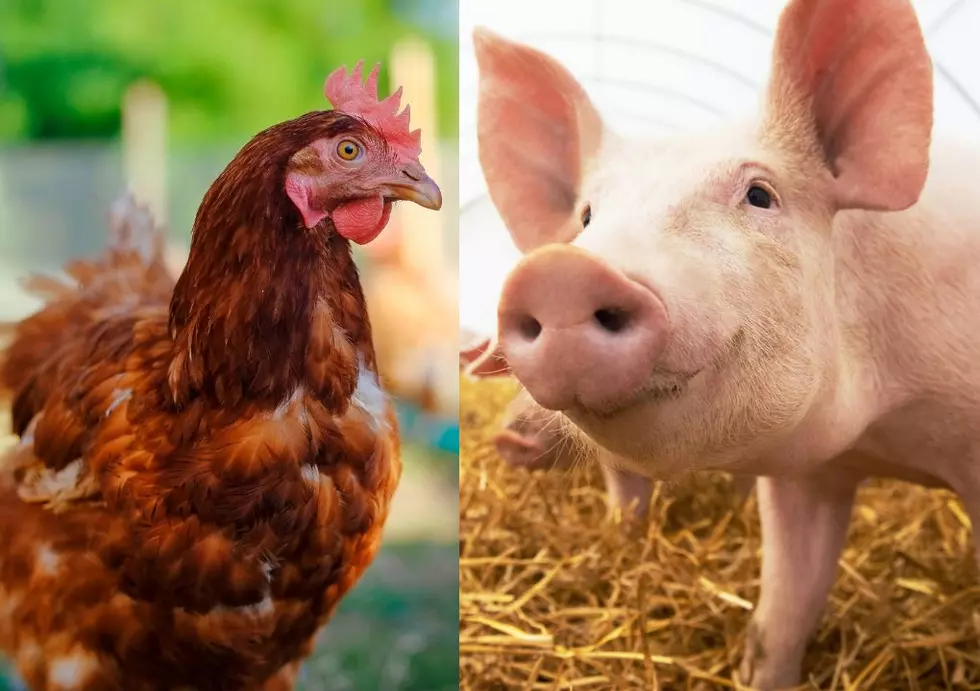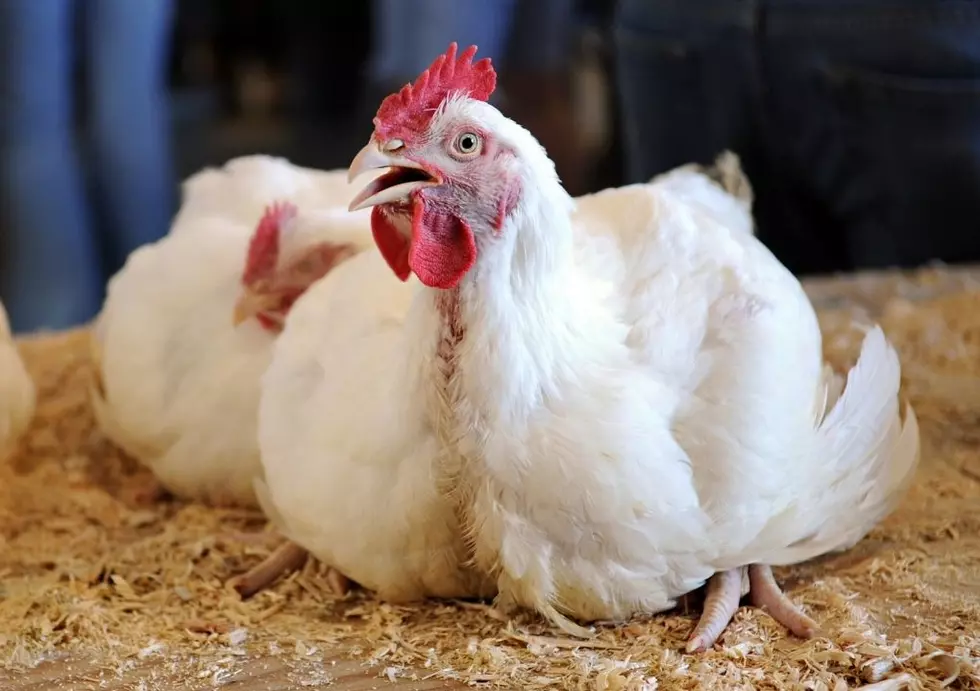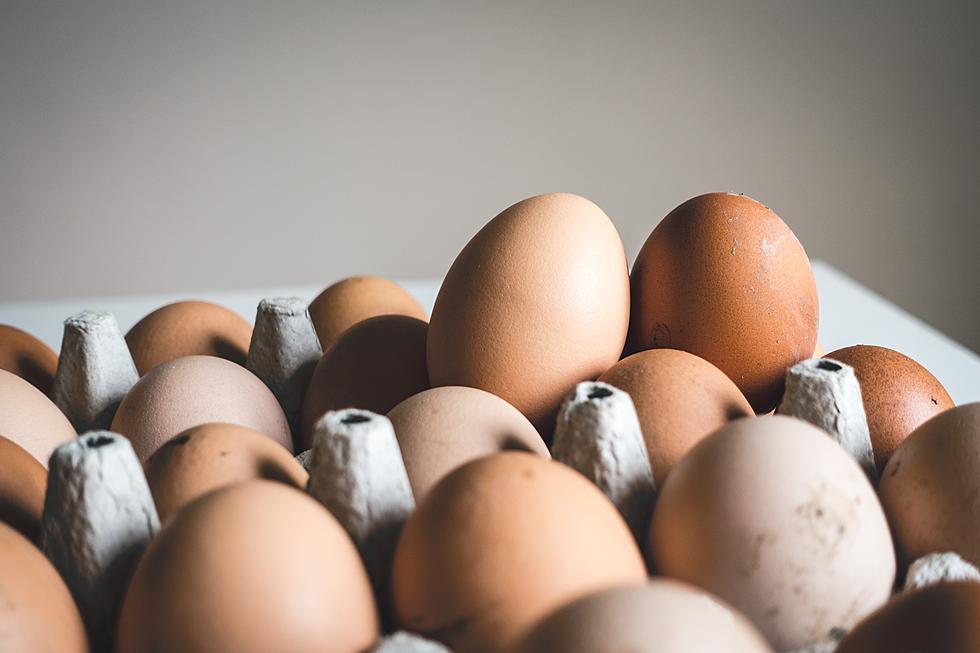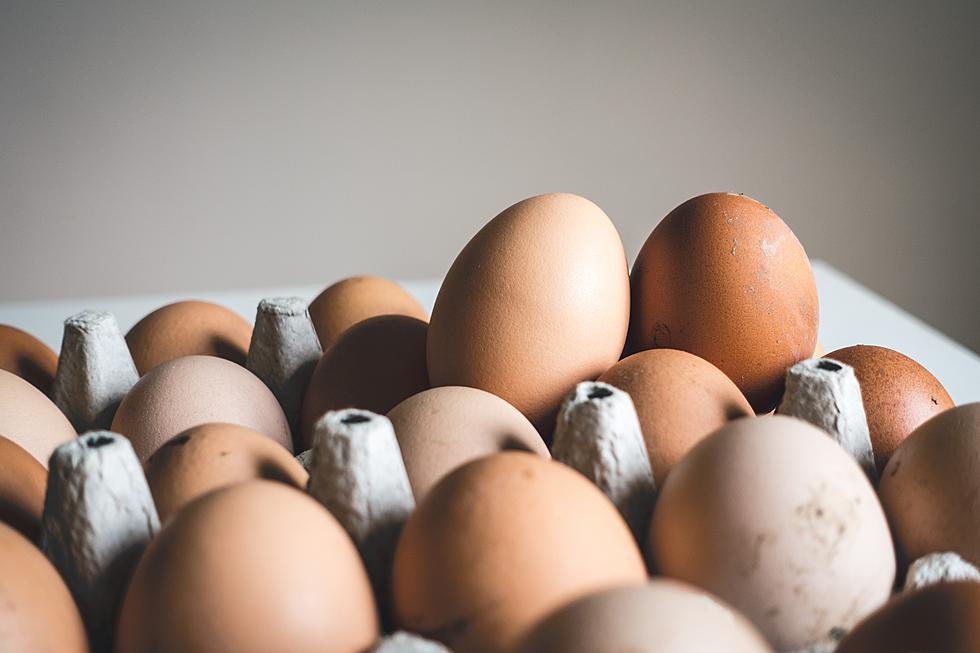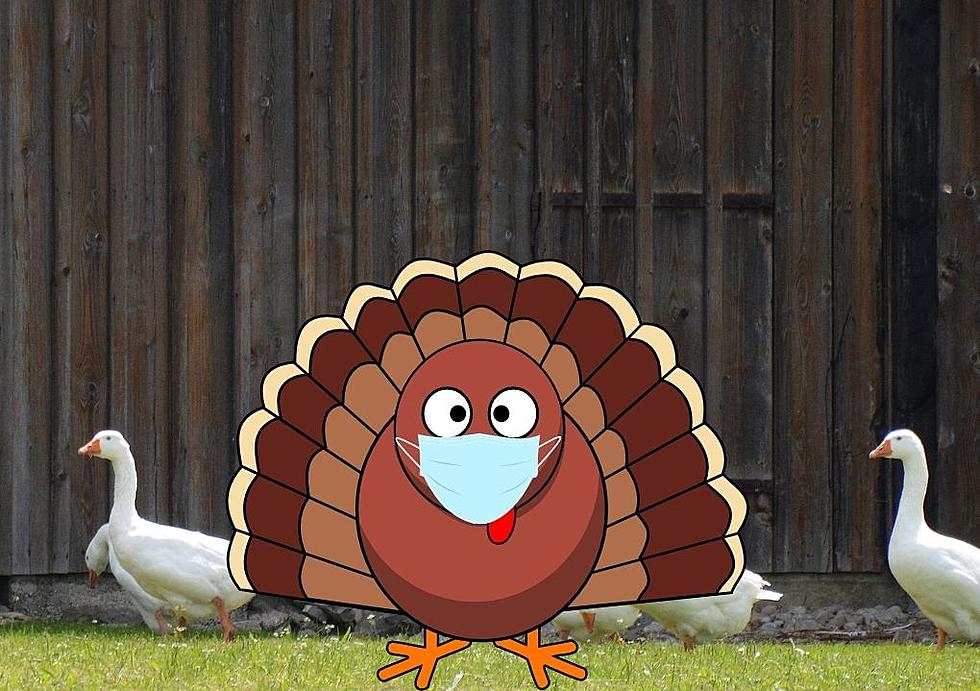
Friendly Reminder If You’re Feeding Birds in Iowa; Please Stop
Spring is here. Tulips and daffodils have sprouted and birds have begun nesting. If you're a bird lover, it's only natural for you to want to feed them.
As much as I hate to say this, we need to stop. At least stop feeding the birds until the end of May. That's what the Iowa Department of Natural Resources is telling us.
If you're like me, you're setting up bird feeders (or maybe you've been feeding all winter) and getting birdbaths ready (as soon as temps stay above freezing).
But bird tending isn't all fun and no work. We have a certain amount of responsibility when it comes to the birds' well-being. According to the Iowa DNR, Aspergillosis, a disease caused by a fungus that often grows in contaminated feed, is one of the main causes of sick and/or dying birds at feeders. When the temperature warms, fungus quickly grows. Birds feeding on contaminated grain often become sick and die.
It's easy to fill up a feeder and sit back to relax, but there's a risk that bird feeders and birdbaths can cause illness and disease.

Salmonellosis is another disease that is contracted at feeders. This disease is caused by the Salmonella bacteria. Staying vigilant and keeping feeders and birdbaths clean is an important way to protect birds from the disease. Salmonellosis is transmitted mostly by contamination of bird droppings, frequently those found in the birds’ feed or water. It can also spread when one bird comes into direct contact with another. Birds suffering from this disease can appear weak, listless, and fluffed-up, and they might suffer convulsions before they die.
Iowans understand how easily birds can get sick especially now with the avian flu outbreaks in our area that is causing millions of domestic birds like chicken and turkeys to die or be destroyed. You can get more details about the avian flu outbreak in Iowa on our website.
We can help our backyard birds from getting sick and spreading the disease to domestic birds by taking a few precautions. The more birds that visit our feeders and birdbaths the greater the chances are of their getting sick. Birds and other backyard critters may bring diseases that can contaminate the food in the feeders or the water we have supplied for them.
We know a lot about spreading germs during the pandemic. Hand washing for humans is critical. It's easy to spread germs through the food we prepare. If you eat something without washing you're more likely to get sick. If food is left out, it becomes unsafe with bacteria and we fall ill. We need to look out for our feathered friends and ensure their food isn't contaminated with bacteria and that the water we leave out for them is clean.
The Iowa DNR says there is good news though.
"The good news about all three of these diseases is that they are largely preventable. Practicing good hygiene at feeder stations is the key. Clean bird feeders and waterers with a 10 percent bleach solution about once each month. Make sure the feeder is dry before refilling it with seed. Of equal importance to disinfecting the feeder is cleaning up spilled seed and bird droppings below feeders. Be sure to wear rubber gloves while cleaning the feeders, since humans can contract some diseases, such as those caused by some Salmonella bacteria, from affected feeders or sick birds."
Until May 31, the DNR wants us to avoid putting out bird feeders, birdbaths, and feeding birds altogether. There is plenty of food in our area to keep our feathered friends nourished. Once we can feed the birds again, follow these steps to keep your feeders clean and disease-free.
According to AllAboutBirds.org, clean the feeders with a bottle brush and hot water at least once a week. Disassemble the feeders and run them through the dishwasher, hand wash with soap, or use a diluted bleach solution and rinse thoroughly. Don't use soap or detergents for hummingbird feeders.
Our beloved feathered friends can be messy and waste builds up easily on feeders, so it's important to keep their equipment clean. Make sure you're changing birdbath water once a week and give that a good scrub as well. Your birds will thank you for it.
No one in Iowa wants to get our birds sick and die, especially if the cause is unintentional on our part. Iowans love their birds. We wouldn't be feeding them if we didn't. Let's take good care of them and do our part.
Fun Facts About All of the 99 Counties in Iowa
10 Questions You Should Never Ask Somebody From Iowa
More From 104-5 KDAT


